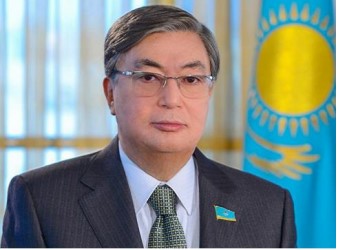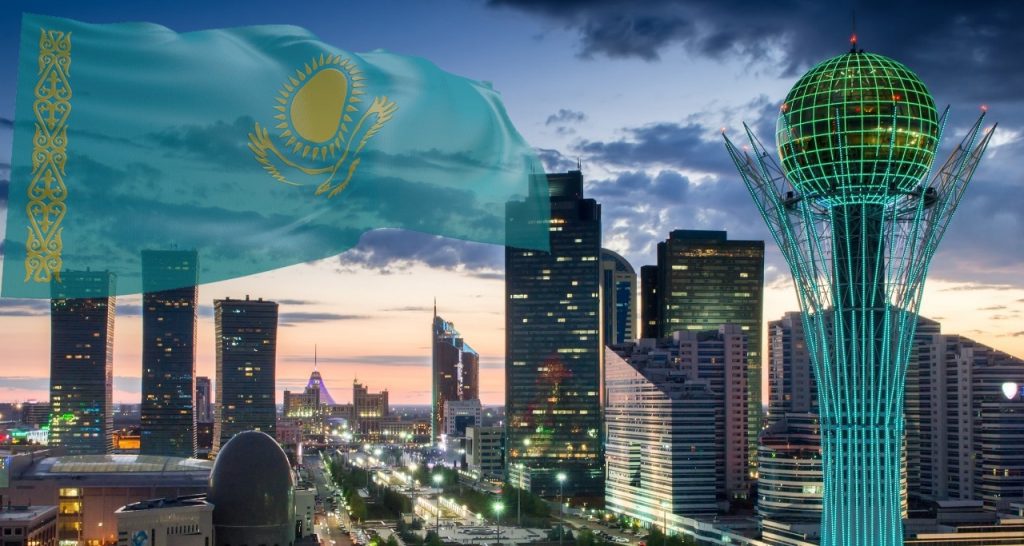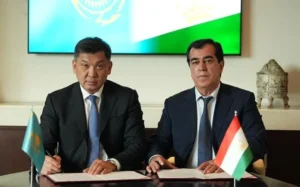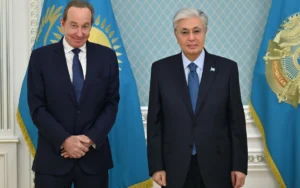Kazakhstan’s Diplomatic Endeavors: Mediation and Global Engagement

Kazakhstan, a nation in Central Asia, has seen significant development and transformation in various spheres, impacting its standing on the global stage. As of 2023, the country stands at a pivotal juncture, showcasing both progress and challenges in its diplomatic relations, nuclear development, and political structure.
Diplomatic Engagements and Regional Collaboration: Kazakhstan’s Global Initiatives
In recent years, Kazakhstan has actively engaged in diplomatic endeavors, positioning itself as a mediator and peacemaker in regional and global conflicts. The country’s efforts in hosting talks and fostering dialogue have been widely acknowledged. President Tokayev’s emphasis on a multilateral approach has propelled Kazakhstan onto the global diplomatic scene, earning praise for its mediation efforts in international conflicts.
Kazakhstan’s Foreign Ministry emphasized the country’s dedication to promoting peace and stability through dialogue and cooperation, both regionally and globally. Kazakhstan actively engages in international forums such as The United Nations and the European Security and Cooperation Organization (OSCE) highlighting its commitment to fostering global peace and security.
Moreover, Kazakhstan prioritizes enhancing economic collaboration within the SCO, considering it essential for expanding trade and economic ties. Recent reports from the Kazakh Foreign Ministry revealed that trade turnover between Kazakhstan and SCO nations reached $61 billion in 2022. Additionally, Kazakhstan’s strategic focus involves advocating for the advancement of Central Asian nations. The CICA’s sixth session served as a significant platform addressing crucial topics including food security, improving transportation connectivity, and bolstering regional security.
Kazakhstan’s Nuclear Strategy: Promoting Peaceful Utilization and Global Responsibility
Kazakhstan’s significant strides in nuclear development have been a focal point of its global identity. The country plays a crucial role in the nuclear arena, being one of the world’s leading producers of uranium. It has consistently emphasized the peaceful use of nuclear energy while actively supporting non-proliferation efforts.
President Tokayev affirmed the nation’s stance on nuclear disarmament, stating, “Kazakhstan is committed to its obligations under the Non-Proliferation Treaty and continues to advocate for a world free of nuclear weapons “The international community has acknowledged the nation’s efforts in promoting the safe and secure use of nuclear resources.”
Kazakhstan’s pursuit of nuclear development is multifaceted, aiming to balance energy needs, economic growth, global recognition, and a commitment to peaceful and responsible use of nuclear technology.
Driving Economic Growth: Kazakhstan’s Strategic Investments
In recent years, Kazakhstan has witnessed several major developments across various sectors. The country’s continued investment in infrastructure projects, including the Nurly Zhol infrastructure program, has aimed to boost economic growth and connectivity within the region.

Moreover, the diversification of the economy, with a focus on technology and innovation, has been a key priority. Kazakhstan’s advancements in the technology sector, particularly in digital transformation and space exploration, have garnered attention globally, signifying the nation’s ambitions to become a technological hub in Central Asia.
Challenges of Democratic Reforms: Kazakhstan’s Political Landscape
Despite progress in various domains, Kazakhstan’s political landscape remains characterized by an authoritarian system with limited democratic practices. Critics and human rights organizations have raised concerns about restrictions on freedom of speech and assembly, citing instances of suppression of dissenting voices.
Freedom House states, “Kazakhstan continues to face challenges in ensuring democratic rights and freedoms, with restrictions on political opposition and media.” The nation’s journey towards democratic reforms and ensuring greater political pluralism remains an ongoing debate and a point of contention both domestically and internationally.
Challenges Amid Diplomatic Strides: Unraveling Kazakhstan’s Global Role
Kazakhstan’s active involvement in these diplomatic endeavors and international cooperation aligns with the principles of Liberalism in international relations. Kazakhstan’s evolution on the global stage is a complex tapestry of progress and entrenched challenges. While the nation has actively engaged in diplomatic overtures, positioning itself as a mediator and peacemaker in regional disputes, questions linger regarding the efficacy and inclusivity of these efforts. President Tokayev’s emphasis on multilateralism within international forums is commendable. However, the dichotomy arises when juxtaposed against the nation’s authoritarian underpinnings, limiting the scope for true democratic representation. Despite Kazakhstan’s strides in diplomacy, the shadow of an authoritarian system casts doubts on the authenticity and inclusivity of its global engagements.
Moreover, the nation’s stance on nuclear development underscores a dual-faced responsibility. Kazakhstan’s commitment to peaceful use and non-proliferation of nuclear energy has earned international acclaim. Yet, in a world striving for disarmament, the question arises: how effectively does the nation balance its nuclear ambitions with the global pursuit of denuclearization?
The recent emphasis on technological advancements and economic diversification, while promising, operates within a political structure criticized for its limitations on democratic practices. These contradictions cast a shadow on Kazakhstan’s narrative of progress, highlighting the complexities of development within an authoritarian framework. Kazakhstan’s positioning within the global community stands at an inflection point, teetering between commendable strides and systemic challenges. The nation’s diplomatic endeavors and nuclear commitments are commendable but exist alongside a political landscape marred by limitations on democratic expression and representation. As the country propels itself into new developmental frontiers, the reconciling of these contrasting facets will define its trajectory in the global arena.
In conclusion, Kazakhstan’s journey toward global prominence is marked by diplomatic initiatives, nuclear responsibility, economic growth, and technological advancements. However, challenges persist in terms of democratic reforms and human rights. The nation’s commitment to addressing these challenges while progressing on multiple fronts will undoubtedly shape its future trajectory on the global stage.


